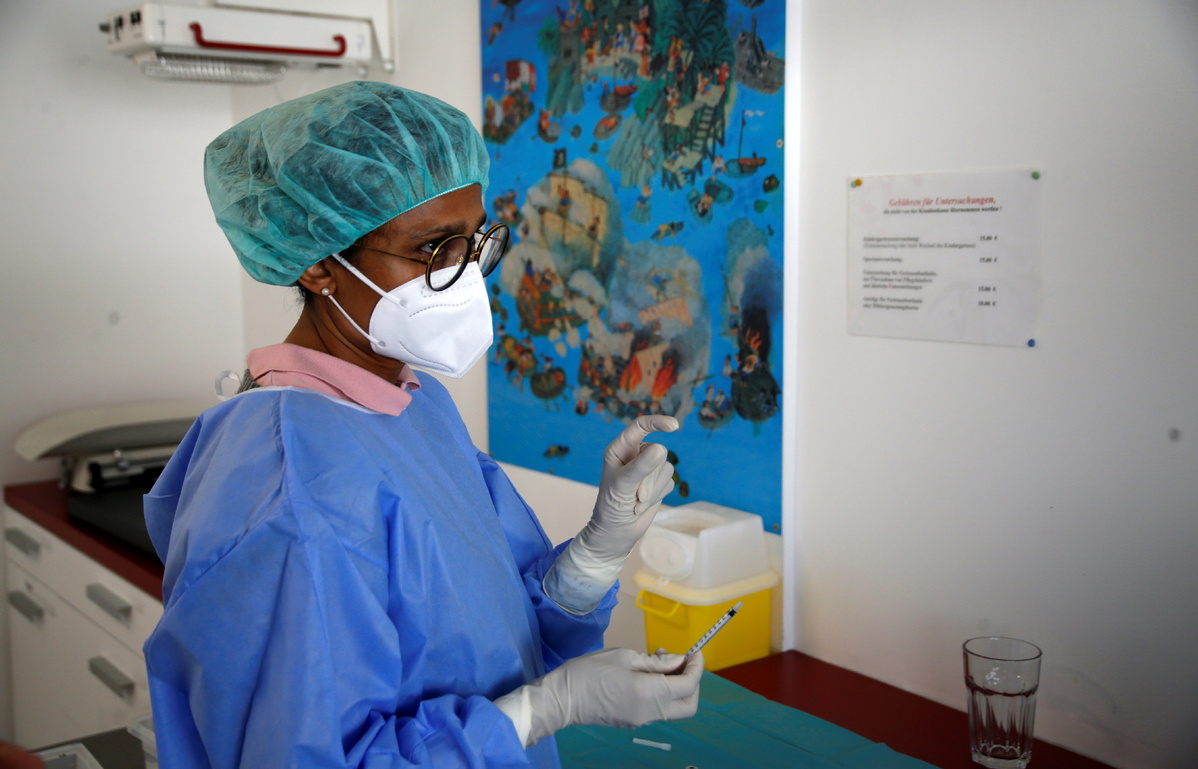BioNTech suggests booster for robust protection


Germany's BioNTech said on Monday that a booster shot of the COVID-19 vaccine it produced with Pfizer will be necessary, but there will be no need to alter it for the Delta variant now spreading rapidly around the world.
Ozlem Tureci, BioNTech's chief medical officer, said it is likely that a third jab has to be given six to 12 months after the initial vaccination round.
Tureci said studies show "robust vaccine effective against circulating variants" after the initial two doses, and noted that a third shot induces a "robust neutralization response "against both the Delta and Beta variants. That is why BioNTech believes a third dose booster may be needed "within six to 12 months after full vaccination to maintain the highest level of protection".
She made the statement during the company's release of its financial results. The German group expected its full-year revenue from the coronavirus vaccine to be about 15.9 billion euros ($18.7 billion), beyond its previous forecast of 12.4 billion euros.
Though BioNTech does not see the need to change its vaccine to target the highly transmissible Delta variant, its CEO Ugur Sahin will not rule out a change in the future.
"It's quite possible that in the next six to 12 months, further variants emerge and that would require adaptation of the vaccine, but it is not yet the case at the moment," he said.
Sahin said making a decision at this moment might turn out to be wrong in three or six months if another variant is dominating. "Therefore, the timing of the decision must be appropriate," he said.
The Wall Street Journal reported last week that the US Food and Drug Administration expects to have a strategy on boosters by early September to lay out when and which vaccinated individuals should get the follow-up shots.
Anthony Fauci, the US' top infectious disease expert, told CNN on Sunday that booster shots should be given soon to people with weakened immune systems.
Different light
"We need to look at them in a different light. We would certainly be boosting those people before we boost the general population that has been vaccinated, and we should be doing that reasonably soon," he said.
Some European Union member states such as Germany and France have also been talking about rolling out booster shots in September. But the European Medicines Agency said there is not enough data to recommend vaccine boosters.
"It is currently too early to confirm if and when a booster dose for COVID-19 vaccines will be needed, because there is not yet enough data from vaccination campaigns and ongoing studies to understand how long protection from the vaccines will last," the agency said.
The news came as the World Health Organization called for a halt on administering the boosters until at least the end of September.
Agencies contributed to this story.

































